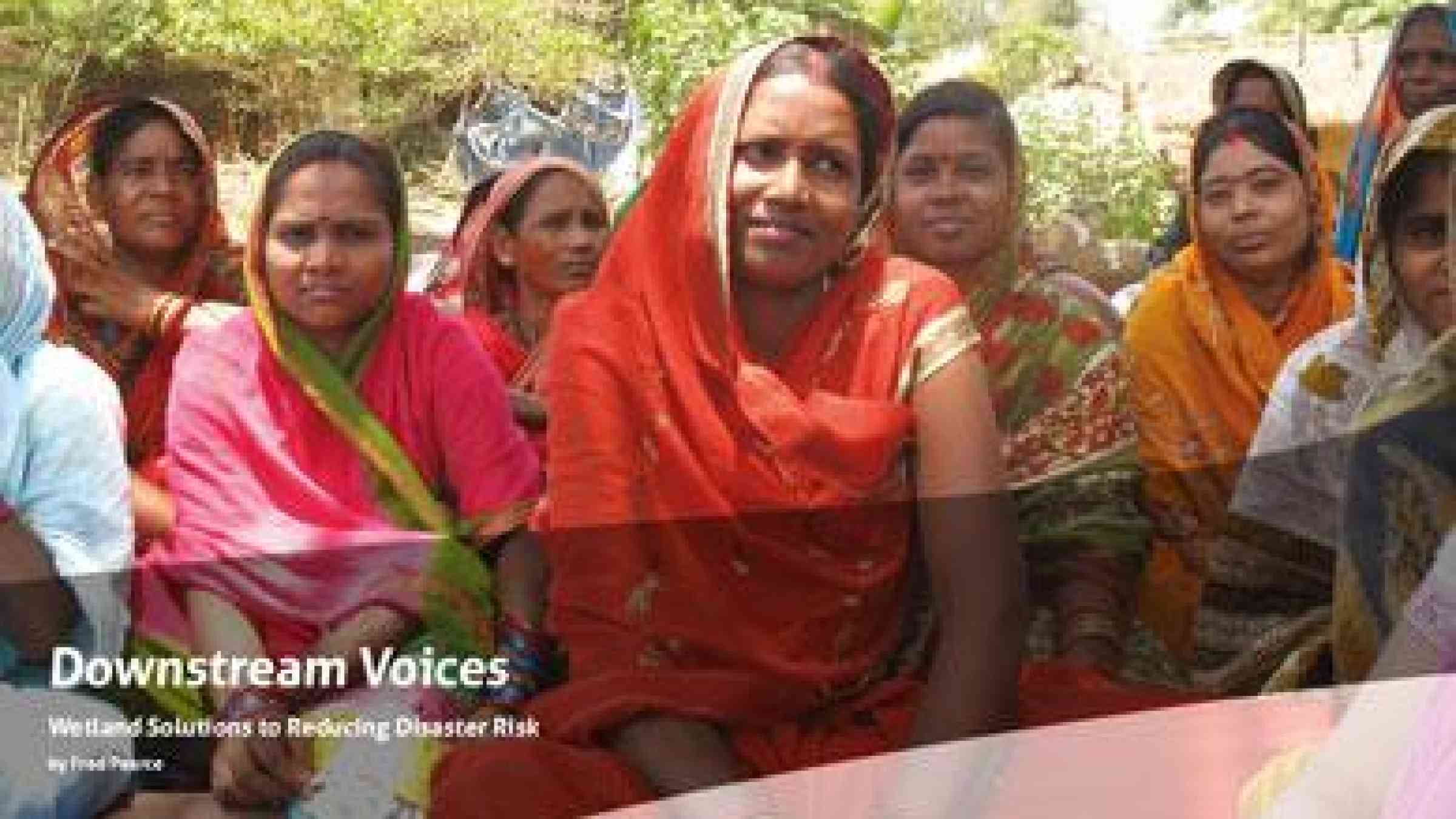Wetlands International releases new book 'Downstream voices' by Fred Pearce

In the new book “Downstream Voices” commissioned by Wetlands International, Fred Pearce takes you along his journey to three large river basins in India, Mali and Senegal where Wetlands International improves water resource management and the condition of wetlands to make communities more resilient to extreme weather events and impacts from climate change.
The book was launched on 22 September in Rotterdam at Wetlands International’s high level international symposium “Wetland Solutions for water, people and nature ”. At the book launch, renowned international journalist and author Fred Pearce told about his journey to India, Mali and Senegal. Guests included former Dutch Minister and Chair of the Delta Alliance Tineke Huizinga, high level officials from the Ministry of Environment from India and Mali, and representatives from many other governments, civil society and private sector.
The stories in the book were collected by Fred Pearce, the author of “The Land Grabbers: The New Fight over Who Owns the Earth”, news editor at New Scientist and regular contributor to the Guardian and the Washington Post. “During my journey, I witnessed the challenges that vulnerable rural communities face in relation to environmental hazards”, says Pearce, “Few people realise the extent to which increased risk is caused or exacerbated by mismanagement of land and water resources, sometimes far away in the landscape”.
Many of the stories result from an innovative five year Netherlands financed programme in which Wetlands International joins hands with humanitarian NGOs Red Cross, Cordaid and CARE. The programme integrates ecosystem management into disaster aid work and is the biggest of its kind in the world; one of the first to take this approach. The programme focuses on water-related disasters such as floods, droughts and coastal storms as they make up the vast majority of risks.
One of the sites discussed in “Downstream Voices” is the Indian coastal state of Odisha which was hit by tropical cyclone Phailin in 2013. While India successfully evacuated nearly a million people from the coastline, the village stayed flooded long after the cyclone. Embankments prevented the water from receding and the river was clogged with silt as a result of soil erosion. Villagers now collaborate to revegetate river banks, align cropping patterns with the floods, and desilt the river mouth. At delta level, Wetlands International is advising on how to realign operational regimes of the upstream Hirakud Reservoir, a hydropower structure that influences fluvial regimes of the delta.
“We are thrilled to launch “Downstream Voices” which shares some of our experiences and illustrates how improving the management of wetlands helps to reduce water-related disaster risks, from the village level all the way up to the wider landscape and watershed. With this book we hope to open the eyes of governments, development and aid organisations, environmental experts and engineers. We invite them to embrace this new way of thinking and to collaborate better for a safer world”, says Jane Madgwick, CEO of Wetlands International.
Please contact Susanna Tol for more information at [email protected] or +31 622624702.